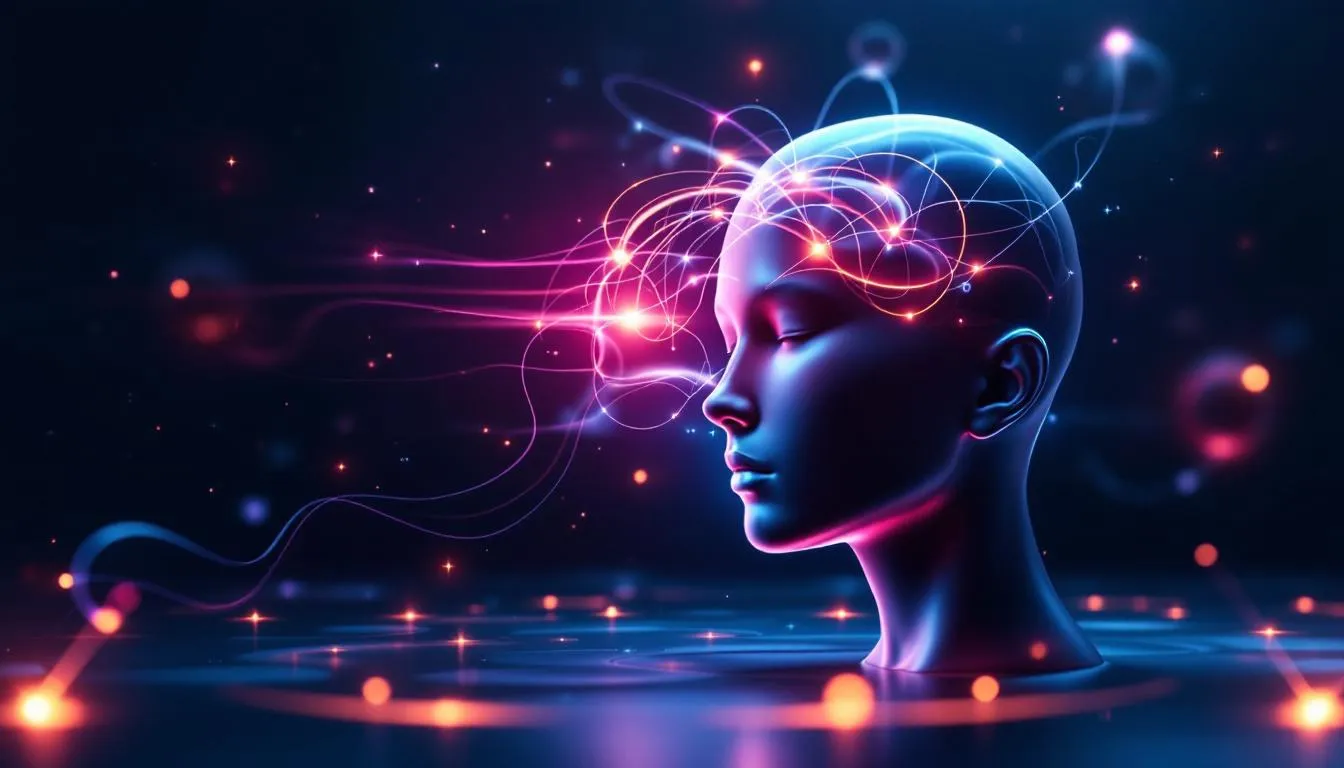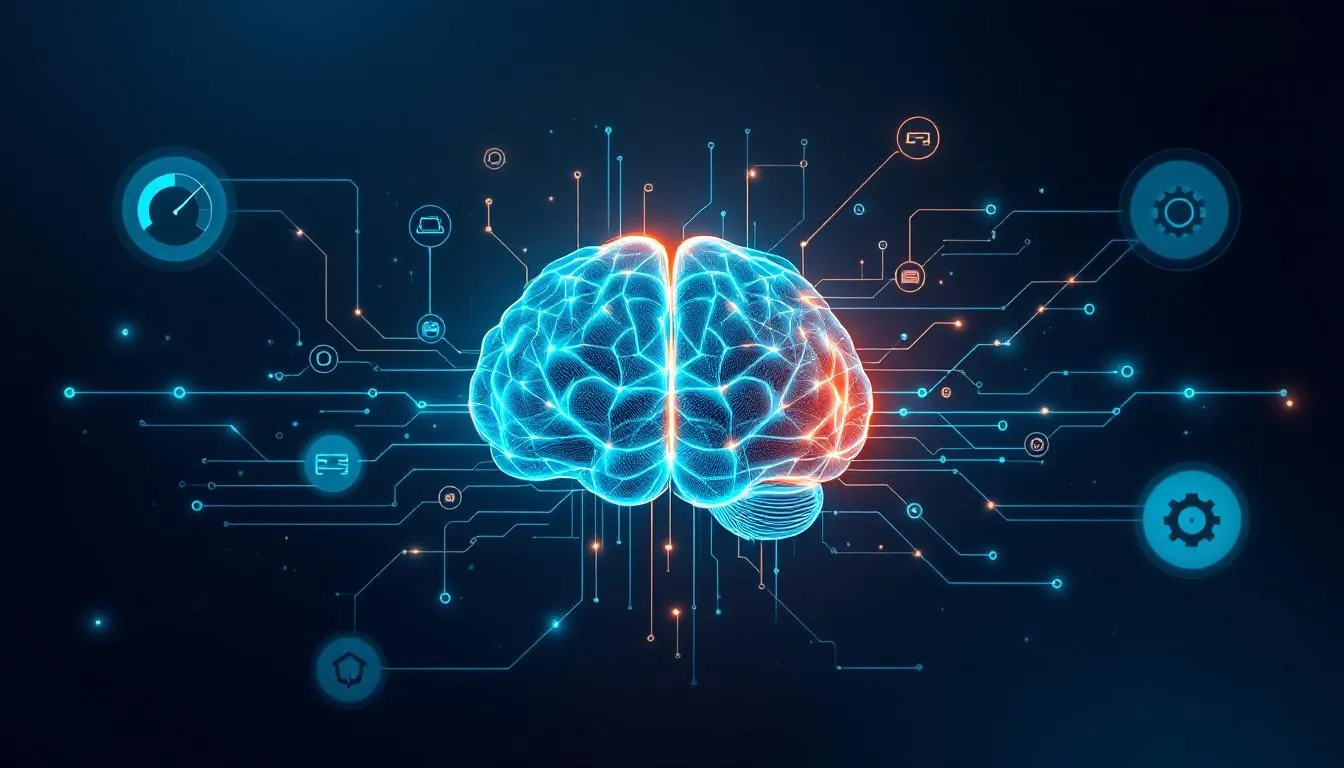Gaming, Coding, or Trading? Use This Nootropic to Stay Sharp Under Pressure

Looking to boost your brainpower? Nootropics might be the key. These cognitive enhancers can improve focus, memory, and overall mental performance. In this article, we’ll dive into what nootropics are, how they work, and which ones could benefit you the most.
Key Takeaways
-
Nootropics, including natural and synthetic substances, are designed to enhance cognitive functions such as thinking, learning, and memory, particularly in high-pressure situations.
-
There are three main categories of nootropics: prescription drugs (e.g., Adderall), synthetic compounds (e.g., Noopept), and natural nootropics (e.g., Bacopa monnieri), each with distinct benefits and potential risks.
-
Despite the popularity and potential cognitive advantages of nootropics, there are associated risks, including psychological dependence and side effects, highlighting the necessity for professional guidance before use.
What Are Nootropics?

Nootropics, also known as cognitive enhancers or smart drugs, encompass a variety of substances aimed at boosting mental skills. These compounds primarily enhance thinking, learning, and memory, making them invaluable in high-pressure scenarios where mental agility is crucial. The term ‘nootropics’ originally referred to chemicals meeting specific criteria, but it now includes a broader range of both natural and synthetic substances, including cognitive enhancer options.
Many nootropics are natural compounds that not only offer short-term boosts in focus and concentration, but also support long-term memory, brain health, and cognitive resilience. Ingredients like L-Theanine, Citicoline, and Phosphatidylserine are examples of natural nootropics that target both immediate mental clarity and future brain longevity.
With the rise in societal demands for peak mental performance, the use of nootropics has surged. These substances can be categorized into dietary supplements, synthetic compounds, and prescription drugs, each offering unique benefits and risks related to mental function.
From students pulling all-nighters to professionals seeking a competitive edge, nootropic supplements have become a go-to solution for enhancing cognitive function and brain health, benefiting both individual brains and overall performance.Formulas like NAD+ Brain combine multiple proven nootropics—such as Citicoline, L-Theanine, and Phosphatidylserine—into one powerful supplement designed to support both short-term focus and long-term cognitive health.
How Nootropics Work

Nootropic drugs and supplements enhance cognitive functions through various mechanisms. For instance:
-
Racetams like piracetam and aniracetam act as positive allosteric modulators of AMPA receptors.
-
They modulate cholinergic systems, thereby improving brain function.
-
These actions help to increase levels of neurotransmitters like acetylcholine, which play a critical role in learning and memory.
Additionally, nootropics improve brain metabolism by increasing the supply of glucose and oxygen, leading to better cognitive function and mental alertness. Whether you’re looking to boost your focus, improve memory, or enhance cognition overall cognitive performance, these cognitive neuroenhancement strategies can make a significant difference.
Types of Nootropics
Nootropics can be broadly categorized into three main types: prescription drugs, synthetic compounds, and natural nootropics. Each category offers distinct advantages and is suited to different needs and preferences.
The following subsections provide a deeper understanding of these categories, highlighting their specific characteristics and benefits.
Prescription Drugs
Common prescription nootropics include Adderall and Ritalin, which are often prescribed to treat narcolepsy and ADHD. Ritalin works by increasing concentrations of dopamine and noradrenaline in the brain, thereby improving attention and focus. Similarly, modafinil appears to be another prescription drug used to treat sleep disorders and enhance cognitive functions.
These prescription drugs are not available over-the-counter and require authorization from a healthcare professional. Although highly effective, they carry risks like potential dependency and side effects, necessitating use under medical supervision.
Synthetic Compounds
Synthetic nootropics like Noopept and Piracetam are popular for their fast-acting cognitive enhancement effects. Noopept, for instance, is known for its ability to improve memory and learning by interacting with neurotransmitter systems. Similarly, Piracetam is another synthetic compound that has shown promise in enhancing cognitive functions, although its efficacy remains a subject of debate.
Synthetic nootropics face skepticism due to limited research on their long-term effects, despite their potential benefits. Approach these compounds with caution and seek professional advice before incorporating them into your routine.
Natural Nootropics
Natural nootropics are derived from herbs and plants and are commonly used to enhance cognitive functions. Bacopa monnieri, for example, is believed to improve information processing in the brain, although it may take weeks to show noticeable effects. Ginkgo biloba is another natural nootropic known for its potential to support memory and reduce stress-related increases in blood pressure.
These natural nootropic supplements are readily available over-the-counter and can be a safer alternative for those wary of synthetic compounds and prescription drugs. They offer a natural approach to cognitive enhancement, making them a popular choice for healthy people seeking to improve their brain health and mental alertness.
Popular Nootropic Supplements

The world of nootropic supplements is vast and varied, with active compounds ranging from classical nootropics to plant extracts. Each supplement offers unique benefits, and understanding their specific effects can help you choose the right one for your needs.
Let’s explore some of the most popular nootropic supplements available today.
Caffeine and L-theanine
The combination of caffeine and L-theanine is a well-known duo in the world of nootropic supplements. Together, they enhance cognitive performance, particularly in tasks requiring attention and memory. Caffeine is known for its ability to improve focus and mental agility, while L-theanine helps to mitigate the jittery side effects often associated with caffeine intake.
This powerful combination is particularly beneficial for individuals who are sleep-deprived, as it can lead to a significant improvement in increased alertness and mental performance, improved alertness, and improve mood. This combination allows for a balanced boost in cognitive function without the common downsides of caffeine alone, such as dry mouth, and the combined effects of these elements enhance overall well-being. This is why we added these two ingredients into our NAD+ Brain product, to deliver a clean, balanced mental edge that supports both productivity and overall well-being.
Creatine
Creatine, commonly known for its use in athletic performance, also serves as a potent nootropic supplement. Classified as an amino acid, creatine supports brain health by increasing the supply of energy to brain cells. This boost in energy can enhance cognitive functions, particularly in stressful situations and tasks requiring intense mental effort.
A typical safe dosage of creatine is around 5 grams per day, which can be easily incorporated into your daily routine. By supporting your brain’s energy needs, creatine can help you stay sharp and focused, even under pressure.
Panax Ginseng
Panax ginseng is a renowned natural nootropic known for its ability to enhance brain function and reduce stress. It offers potential benefits for cognitive enhancement, making it a valuable addition to your nootropic regimen. However, caution is advised regarding its long-term use, as the body may adapt to its effects, reducing its efficacy over time.
Despite this, Panax ginseng remains a popular choice for those seeking a natural way to boost cognitive performance and body handle stress. Its well-documented benefits make it a reliable option for enhancing mental alertness and overall brain health.
NMN
Nicotinamide mononucleotide (NMN) is a naturally occurring compound that plays a vital role in energy metabolism and cellular functions. Supplementing with NMN can enhance insulin sensitivity, support heart health, and potentially reduce fatigue with minimal side effects. Research indicates that NMN levels decline with age, which may contribute to various age-related health issues.
Studies in animal studies suggest that NMN could reverse certain aging effects and improve cognitive health, though more human research is required to confirm these findings. With doses ranging from 250 mg to 1,200 mg per day, NMN offers a promising avenue for enhancing cognitive function and overall health.
Potential Benefits of Nootropics

The potential benefits of nootropics are vast and varied, making them a valuable tool for cognitive enhancement. Nootropics can enhance cognitive functions by increasing levels of acetylcholine and modulating neurotransmitter activity, leading to improved memory and learning capabilities. They also improve brain metabolism by increasing the supply of glucose and oxygen, thereby boosting cognitive performance and highlighting their cognitive effects.
Additionally, nootropics like caffeine and creatine can enhance mental alertness, reduce reaction time, and improve overall mental performance. Bacopa monnieri has shown potential in shortening reaction times and boosting attention speed in studies, making it a valuable addition to any cognitive enhancement regimen.
Risks and Side Effects
While nootropics offer numerous benefits, they also come with potential risks and side effects. Dependence on some nootropic substances can develop with prolonged usage, leading to psychological dependence. Additionally, stimulant nootropics can increase high blood pressure, posing a risk to individuals with cardiovascular issues and nootropic effects.
Other common side effects include gastrointestinal disturbances and sleep disturbances, such as insomnia. Long-term use of nootropics in healthy individuals may lead to unknown health risks, making it essential to consult healthcare professionals before starting any nootropic supplements, especially for those with underlying health conditions. The most common side effects of nootropics should be carefully considered.
Research and Evidence
The current state of research on nootropics highlights a lack of consistent findings regarding their effectiveness and safety, particularly in healthy individuals. While many nootropics are popular among consumers, more rigorous scientific studies are needed to verify their safety and efficacy. For example, the efficacy of various botanicals like Ginkgo biloba and Bacopa monnieri has been studied, but results have been mixed.
Notable gaps in research concerning the long-term safety and effectiveness of nootropic supplements underscore the need for more research; research is needed. Understanding these research limitations is crucial for making informed decisions about the use of nootropics for cognitive enhancement and cognitive impairment, as there is convincing evidence of their potential impact, including findings from systematic reviews.
Nootropics in Everyday Life

The popularity of nootropics is increasing across various demographic groups, including students and professionals seeking to enhance cognitive performance. The nootropic supplement industry is expected to reach nearly $5.8 billion by 2023, reflecting a growing trend among adults, especially older individuals, seeking cognitive enhancement.
University college students often use nootropics, referred to as ‘smart drugs’ and study drugs, to improve memory and attention, despite concerns about their long-term safety and efficacy. Additionally, nootropics can assist in cognitive recovery for people recovering from a brain injury, promoting rehabilitation processes and enhancing short term memory.
Summary
In conclusion, nootropics offer a promising avenue for cognitive enhancement, providing benefits such as improved memory, focus, and mental alertness. However, it’s essential to approach their use with caution, considering the potential risks and the need for more rigorous research. By making informed choices and consulting healthcare professionals, you can harness the power of nootropics to enhance your cognitive performance and stay sharp under pressure.
Frequently Asked Questions
What are nootropics?
Nootropics are substances aimed at enhancing cognitive functions such as thinking, learning, and memory. They are often referred to as cognitive enhancers or smart drugs.
How do nootropics work?
Nootropics work by enhancing cognitive functions, primarily through the modulation of neurotransmitter systems and by improving brain metabolism with increased glucose and oxygen supply. This leads to better overall mental performance and clarity.
What are the different types of nootropics?
Nootropics are classified into three main categories: prescription drugs, synthetic compounds, and natural nootropics, each with distinct benefits and potential risks. Understanding these types can help you choose the most suitable option for your cognitive enhancement needs.
What are some popular nootropic supplements?
Popular nootropic supplements include caffeine and L-theanine, creatine, Panax ginseng, and NMN, each offering unique cognitive enhancements. Consider these options to improve your mental performance.
Are there any risks associated with nootropics?
Yes, nootropics can pose risks including dependency, increased blood pressure, and gastrointestinal and sleep disturbances. It is advisable to consult healthcare professionals prior to beginning any nootropic regimen.
Researched and reviewed by Dr Elena Seranova, Ph.D.
Dr Seranova holds a master's degree in Translational Neuroscience from the University of Sheffield, UK, and a Ph.D in Stem Cell Biology and Autophagy from the University of Birmingham, UK. She is a published author in multiple peer-reviewed journals, including Cell Reports and Developmental Cell.
LEARN MORE!
- What Is 'NAD+ Brain' and How Does It Work?
- L-Theanine for ADHD: Dosage and Benefits
- NAD+ vs NMN: A Comprehensive Comparison






Leave a comment